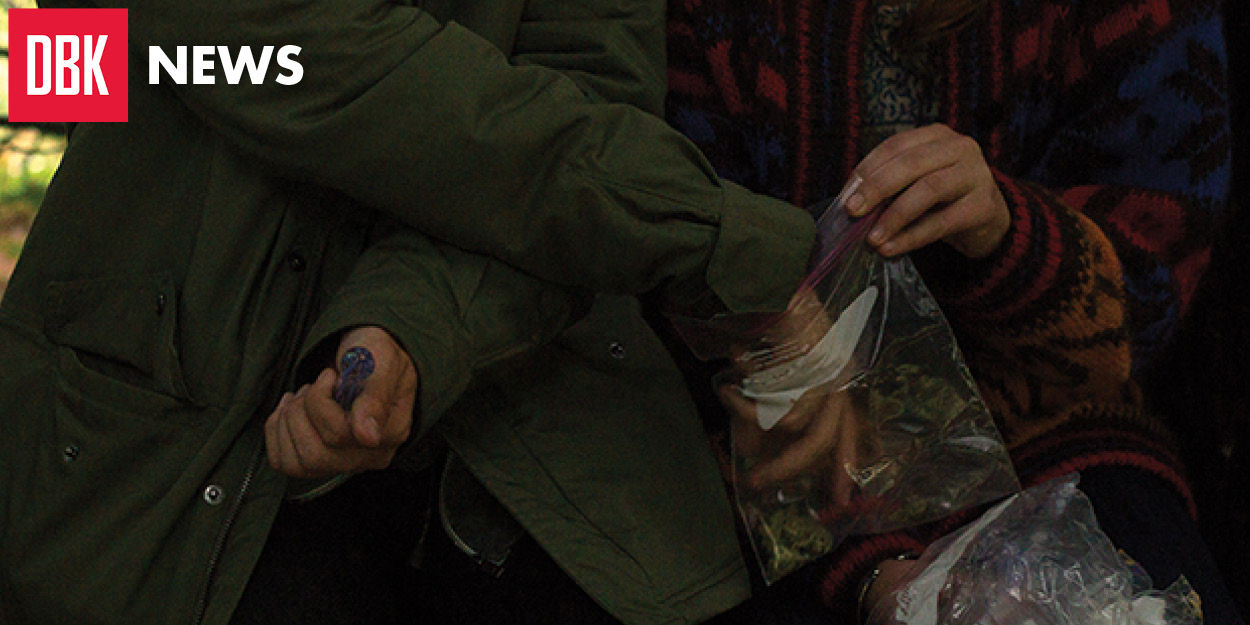
In October, this state decriminalized possession of small amounts of marijuana. Now, state legislators are looking ahead to further marijuana reform as the General Assembly convenes in January.
Legislation was introduced this year to the House of Delegates and the Senate to legalize, regulate and tax marijuana, which received widespread support. The House bill had 32 cosponsors, and the Senate bill had 10.
The bill’s lead sponsor, Sen. Jamie Raskin (D-Montgomery) said he does not expect the legalization to pass in 2015, but he is confident the state will legalize the drug in coming years.
“The sentiment in the General Assembly is to take stock of what is happening in Colorado and Washington before going any further,” he said. “I feel pretty certain this is where things are moving over the course of our new term in office.”
During his campaign, Gov.-elect Larry Hogan expressed opposition of marijuana legalization, but Raskin said he thinks Hogan could change his mind if there is enough public and political support, especially if he sees the possible revenue totals.
“If [Colorado and Washington] are collecting $150-200 million in new revenue, that is going to look very attractive to us when we’re trying to balance our budget,” Raskin said. “I would not assume that just because we have a Republican governor that we would not move forward eventually on regulation and taxation.”
In addition to the financial benefit, Raskin emphasized that drug prohibition laws have been unsuccessful in achieving their initial goals.
“The war on marijuana has been a complete failure,” Raskin said. “We have not reduced access, we have not reduced consumption and we have not improved public health. … It’s time for us to recognize that and treat alcohol and drug use as a public health problem and not a criminal law problem.”
Though the legalization bill had heavy support in the House, it remained in the Judiciary Committee at the end of the legislative session. But after November’s election which replaced about half of the committee members, committee Chairman Joseph Vallario (D-Prince George’s and Calvert) said he has “no idea” where they stand on legalization.
Vallario voted against the decriminalization bill, and though he is waiting to pass judgment on a new bill until he reads it, he is unlikely to support legalization measures.
“It’s a gateway drug to other drugs; that’s one of the big problems,” Vallario said.
Mikayla Hellwich, a 2014 alumna from this university and Law Enforcement Against Prohibition spokeswoman, said many police officers are in favor of legalization.
“It’s a public safety nightmare,” she said. “It wastes the time of law enforcement; they could be doing so many other important things. So much of our resources have been diverted to drug enforcement. It’s a waste of time, and because of it our streets are not safer.”
Rachelle Yeung, this state’s political director for the Marijuana Policy Project, said the group will be committed to educating legislators about the issue of legalization. But the more pressing issue, she said, is fixing the decriminalization bill so it includes marijuana paraphernalia, which has been one major criticism of the law.
“It was a serious oversight to leave paraphernalia out of that bill,” she said. “Passing that fix to the paraphernalia issue will be our priority this upcoming session. We already know that a lot of legislators are on board with that, and they feel that was a missing piece.”
Raskin said he expects the paraphernalia aspect to be “cleaned up” this upcoming legislative session to create more consistency for law enforcement. Vallario also expects to see a bill dealing with paraphernalia, though he did not disclose whether he supports such an action.
Olivia O’Keefe, president of this university’s chapter of Students for Sensible Drug Policy, said the paraphernalia omission was one of the main reasons the decriminalization bill passed, noting a distinction between possession and usage.
“When you start to look at paraphernalia, you are legalizing the use of the drug,” she said. “While that’s something specific I would like to see amended, I’m doubtful it will come any time before a marijuana legalization bill.”
This university’s Student Government Association passed a resolution Nov. 5 supporting regulation and taxation of marijuana. The move came in response to Student Government Association student poll that showed 60.1 percent of students are in favor of legalization, with 16.3 percent opposed.



